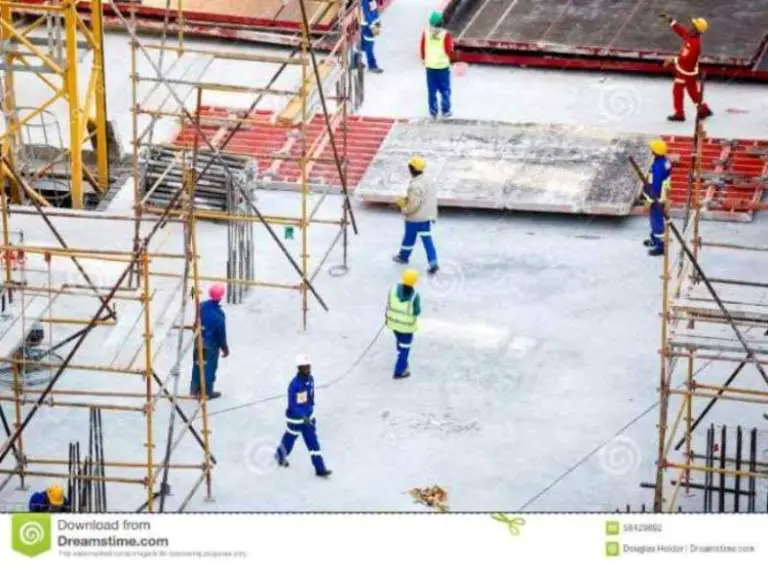South Africa’s Labour Ministry now says that nearly 500,000 construction workers are endangering their lives in their work places that do not comply with the country’s health and safety standard.
Speaking this week at the presentation of the findings of the Tongaat Mall collapse of 19 November 2013, Labour minister Mildred Oliphant said that as much as 40% of the industry did not comply with these laws, which translated to about 5000 construction sites across the country.
These risks originated from issues such as lack of compliance with health and safety standards to “deliberate ignorance”.
The condition had become slightly better since the introduction of construction regulations in 2014. The regulations made it mandatory to have a construction safety and health agent and obtain a construction work permit.
However, there was however still chance to improve on these regulations.
She said the number of deaths caused due to the deliberate ignorance of these health and safety regulations had since decreased to 1.5 deaths per week, two per week, she said.
The minister was speaking during the presentation of the report of the Tongaat Mall collapse of 19 November 2013.
Inspectors found that several Occupational Health and Safety Act and construction regulations had been violated including building without approval.
It was found that ultimately a beam collapsed after removal of support work. This caused a slab to come down onto two workers, crushing them to death while twenty-nine other workers sustained serious injuries including to the head, back, and lower bodies
The report would be forwarded to the National Prosecuting Authority for a final decision on whether to initiate charge against someone with a crime.
South Africa’s Labour Ministry proposed that amendments to the Occupational Health and Safety Act would make the possibility of jail time a reality, as opposed to companies being fined and “buying” their way out of violations.
In the meantime, no sanctions would be imposed against the construction company, Gralio Precast, or any of its agents. This would depend on the NPA’s decision.

